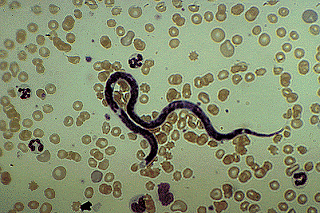 If your dog is scheduled to undergo surgery, whether a routine
spay/neuter or something more serious, you're naturally concerned about
how your pet will be cared for after the procedure and what care you
will need to provide for him once he is released from the veterinary
hospital.
If your dog is scheduled to undergo surgery, whether a routine
spay/neuter or something more serious, you're naturally concerned about
how your pet will be cared for after the procedure and what care you
will need to provide for him once he is released from the veterinary
hospital.-
Clinic Care
-
Wrapped the animal in warm blankets or towels until it wakes from the anesthesia.
During anesthesia, a pet's body temperature drops and the blankets are necessary to make him as comfortable as possible on waking.
The veterinarian or staff at the clinic will monitor the dog until he is fully awake to ensure he is recovering as expected.
Pain Relief
-
Ensure your pet will be given pain relief immediately following the surgery and ask the doctor about pain relief medications you can provide to your pet during recovery at home.
Instructions
-
Ensure that you follow the veterinarians instruction regarding when and how much to feed your dog and how much water it should consume. If you're taking the pet home immediately following surgery, ask the doctor how long you should wait before offering her water. It's also important to administer any medications according to the doctor's instructions.
Limits
-
If your dog is released from the clinic shortly after the procedure, it may still be under the effects of anesthesia. It may not have a good sense of balance or direction. To prevent her from falling and injuring itself, keep it confined until the drugs have left it system.
Your dog will need to stay indoors for at least a week following surgery, perhaps longer depending upon her exact condition and the specific procedure performed.
-
Monitoring
-
Some dogs will chew or lick on their surgical incision when it starts to heal. Monitor your dog's incision site and prevent her from chewing on the area. Your dog may need to wear an Elizabethan collar, which is designed to prevent her from reaching the incision site, if you are away and unable to monitor it activity. If the incision site swells, has discharge or bleeding, you should contact your veterinarian.
Is it okay for my pet to lick the incision?- If a dog licks the incision, the healing process may be delayed.
- Licking can remove stitches and cause the incision to open
- Licking can become a severe habit that is difficult to break
- Licking can cause infection as the mouth has many bacteria
- Dogs will frequently lick the incision when the owner is not watching such as at night time; if the skin looks red or excoriated the most common cause is from licking.
- To stop your pet from licking the following can be tried:
- Elizabethan collar can be placed on the neck; this will not help stop your pet from scratching at the region
- Cervical collar (bite not collar) is a less awkward device and can be effective at stopping a pet from licking the surgical site
- A tee shirt can be used to cover an incision on the chest or front part of the abdomen; gather the waist of the shirt up over the dog's back and wrap an elastic band around this part of the shirt.
- A bandage or sock can be used to cover an incision on a limb; fasten the top of the sock to the dog's limb with tape.
- Antipsychotic medication in some cases is needed
-
http://www.vetsurgerycentral.com/hernia.htm







